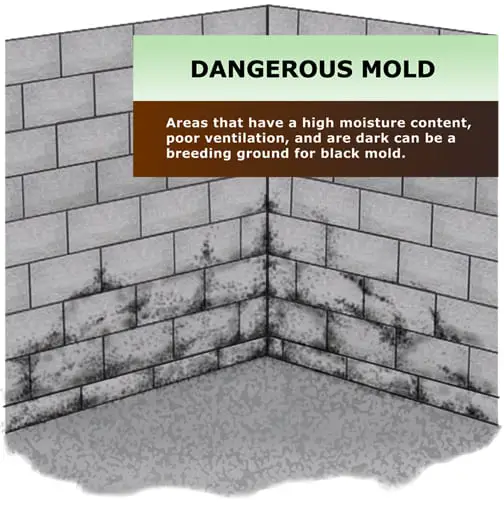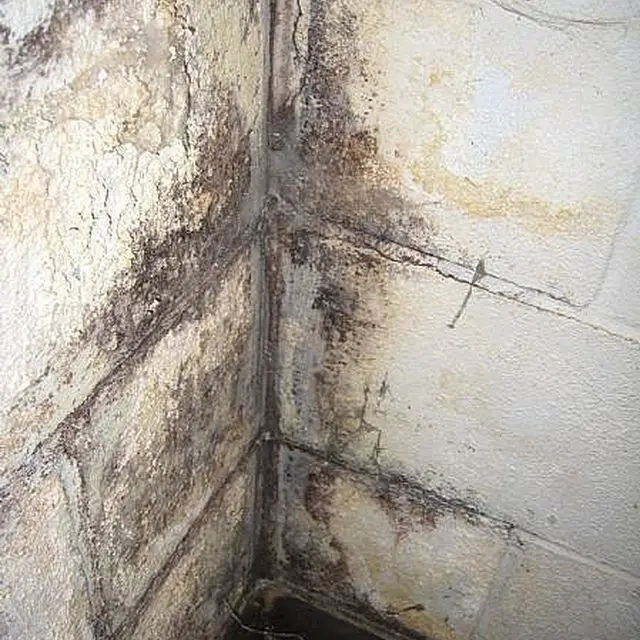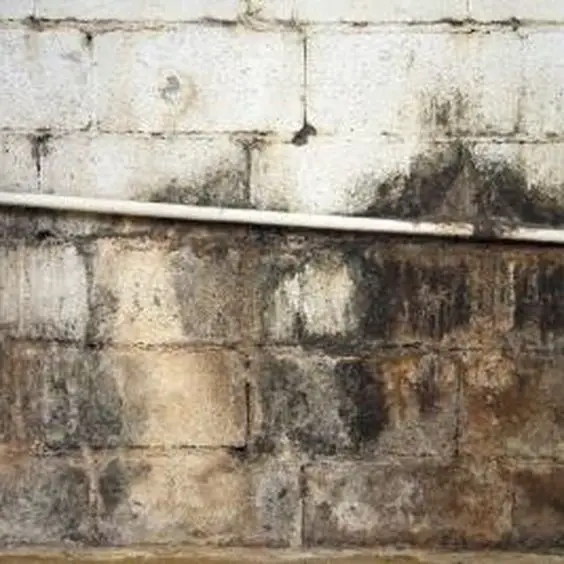Request A Free Home Mold Inspection And Basement Waterproofing Evaluation
If you suspect that your home may have a mold problem, or if you have noticed any of the mold warning signs above, it is essential to get help right away. Left unchecked, even a small mold infestation can spread and pose serious threats to your home and health.
Contact Zander Solutions to schedule a free basement waterproofing evaluation today. Our waterproofing pros are seasoned vets certified in the industrys leading techniques for residential and commercial mold removal, restoration, and foundation repair. If you have a problem, theyll find the source and prescribe the most effective remedy at a price that cant be beat.
How To Tell If You Have Mold In Your House
It can be hard to tell if you have mold in your house. Obviously, if you see mold somewhere, youve got a mold problem in your house, but mold can hide in walls, ventilation ducts, crawl spaces, and in other hard-to-see areas.
A common way to check for mold is to smell for it. A musty smell in an area of your home is often an indicator that there is some kind of mold present. Symptoms like a persistent runny nose, watery eyes, sneezing and throat irritation could also be indicative of mold.
In addition, anywhere that has been exposed to a significant amount of moisture such as water damage from flooding is a potential area where mold may be growing. Look for water where it shouldnt be, and check areas which may have flooded in the past.
Also Check: How To Get Rid Of Black Mold In Ac Vents
Symptoms Of Mold In Basement What Do You Do When You Find Mold
So, hopefully we have convinced you by now that you dont want to live with mold! Now that youve found it, what do you do?
Removing mold can be a DIY project, but its a good idea to know when to call the pros. Our tips for mold removal help you know what to use, and what not to use. We can help you remove the mold safely, whether you choose to DIY or call the professionals. We want to help you get back to living your best life in a clean mold-free home!
Recommended Reading: How Do You Clean Mold Off Concrete
How To Prevent Mold In Your Home
Its much easier to prevent mold than get rid of it once its there. Follow these six tips to help reduce the risk of mold in your home.
Signs Of Mold In Your Basement Or Crawlspace

When you have a warm and humid basement, spores that were once dormant spring to life and begin to reproduce. When this happens, mold starts to appear in sizes big enough to see with the naked eye. If you are highly vigilant, there are noticeable signs that your basement has become a mold breeding ground. Catch these signs before your mold problem gets out of hand.
High Humidity: If your basement or crawlspace feels damp and you notice condensation on pipes and windows, its a sign that the humidity is high enough for spores to germinate and develop into mold.
Musty Smells: If your basement develops a musty, damp, or earthy odor, it might be an early sign that you have a mold problem or at the very least a damp enough environment to encourage mold growth.
Peeling Wallpaper or Paint: If you have wallpaper or paint that is bubbling and peeling, it means that the humidity is high enough to weaken the adhesive that attaches it to the wall. This means that conditions in your home are damp enough for dormant spores to activate.
Allergies: If you notice an increase or new occurrence of allergy symptoms with no apparent reason, it might be attributed to unrecognized or undetected mold growth in your home.
It is important to mention that if you notice one or more of these signs in your basement but cannot visually identify the spots or staining attributed to mold growth, then it is likely the mold is hidden in an area that is not easily observed.
Also Check: How To Find The Source Of Mold In Your Home
Hiring A Mold Removal Specialist
When considering getting a consultation for mold removal, we can help you with a free estimate! The cost of the estimate will vary depending on the situation and the extent of damage observed in your home.
Having mold in your basement can greatly affect the health of your family. Here at Steri Mobile, our mold remediation process makes sure that the mold in your home is gone for good. If you think you have mold in your basement, dont hesitate to contact us. We specialize in mold removal in your home, from basement mold to attic mold.
Mix Grapefruit Seed Extract And Water
Similar to essential oils, grapefruit seed extract is a natural mold remover. However, this ingredient also prevents the mold infestation from coming back later.
Mix the extract with an equal amount of water in a spray bottle. Spritz the affected areas, allowing the solution to sit for five minutes. Use a sponge or dry cloth to wipe the mold away.
Don’t Miss: How To Get Rid Of Mold Mildew Smell In House
Living With A Moldy Basement: Key Takeaways
Damp, moldy basements pose a risk to the health and safety of your home and its occupants. By taking steps to waterproof and protect your basement from moisture, humidity, and mold growth, you can make a significant difference in the overall health of your entire home. If your basement is damp, musty, or moldy, schedule a free consultation and estimate with your local Basement Systems waterproofing contractor today.
How To Get Rid Of Mold In The Basement
The worst has happened: youve found a suspicious patch growing in your basement. Perhaps you havent been down there in a while. Maybe the mold took hold in a hidden area and spread insidiously over time.
Whatever the reason, you now have a potentially dangerous problem on your hands. Mold can provoke a host of nasty symptoms, from sneezing and coughing to infections.
Dont panic well share how to get rid of mold in basements. If youre not prepared or informed, you could worsen the situation or endanger your health.
Read Also: Will An Air Purifier Help With Mold
Extent Of Mould Growth
It is important to determine the extent of the mould problem in your home to help you decide on the clean-up procedure. An area of mould is considered small if it covers one square metre or less. There should be no more than three patches of mould, with the total area staying within one square metre. Many small patches of mould in one area or throughout your home are a sign of moisture problems that need to be investigated and corrected right away.
If ignored, small mould areas may become larger over time, so it is important to clean them up before the problem gets bigger. A small amount of mould may be cleaned up using proper procedures and protective equipment.
The area of mould is considered medium if there are more than three patches of mould , but the total area is less than three square metres. In this case, assessment by a qualified professional is recommended but in most cases a medium amount of mould may be cleaned up using proper procedures and protective equipment .
An area of mould is considered large if a single patch of mould is larger than three square metres. Health Canada does not recommend that an unqualified person clean up large areas of mould. You may need a professional assessment to determine why the mould is there in the first place and how to clean it up.
You May Like: How To Remove Mold From Shower Ceiling
How Do You Get Mold In Your Basement
Mold is a natural way that the environment breaks down organic debris, and tiny mold spores are present everywhere. When mold spores come into contact with a damp surface, they either begin to grow or try to break down the item that theyre growing on, such as natural fibers and untreated wood.
There are different types of mold, but its easy to identify each type once you know their characteristics. Knowing where to look makes it easy to find. Mold will usually grow when there is moisture from HVAC condensation, pipe leaks, or unsealed basement walls. By checking around your HVAC units, under overhead pipes, and along where basement walls meet the floor, you can usually find where mold has settled and started to grow.
You May Like: Can I Use Vinegar To Clean Mold
Can You Get Sick From Mold In Your House
Yes. Those will allergies, compromised immune systems, asthma, or other such issues are at a higher risk as even minor, non-toxic molds could cause a variety of uncomfortable symptoms. Mold in your house is rarely life-threatening. However, prolonged exposure is far from ideal for a number of reasons.
Tips For Preventing Basement Mold Growth

If youre lucky enough to not find any mold in your basement, that doesnt mean that there isnt anything growing behind your walls, or that you will never be affected by this. The following tips will be helpful whether youre seeking to keep your basement mold-free or as steps after youve removed the mold and are seeking to prevent future mold growth.
Cleaning and vacuuming regularly will help remove possible sources of mold growth. Using a vacuum with a High-Efficiency Particulate Air filter will effectively remove existing mold spores. Pay special attention to areas which are exposed to moisture, as well as to nooks and crannies.
Wipe down any leaks and spills as soon as possible. In case your basement got flooded or suffered from any type of water damage, make sure its completely dried within two days. A heavy duty dehumidifier should do the trick for you. You can also consider damp-proofing your walls with a waterproof coating .
As much as possible, dont store clothes, books, papers, and carpets in your basement. If this cant be avoided, dont store these items in cardboard boxes use plastic containers instead.
Regularly check your pipes and walls to make sure they are in good condition. Your basement walls may also leak if they arent waterproofed.
Read Also: How To Know If There Is Mold In Your Walls
Thoroughly Inspect The Basements Ductwork
If you dont have any roof leakage but have mold growing on your ceilings, your ductwork might be the issue. Poorly insulated ductwork can lead to mold formation, especially under ducts or registers.
Warm and moist air condenses inside the ducts, forming water. These then carry cold air through the attic and crawl space, leading to condensation. Its a sign that your ducts may be uninsulated or have a missing vapor barrier.
Nevertheless, the water inside these ducts will saturate the insulation and drywall. And this is where mold spores take root. From here, mold will continue to spread, even if your ducts have a reliable filter in place.
You May Like: Cleaning Mildew From Boat Seats
Dealing With Mold In Your Basement
Its possible that you may observe standing or pooling water in your basement or crawl space. You may also see watermarks on your foundation. If so, the next thing that you should look around for is mold.
Again, youll want to enlist the help of professional mold remediation services in these instances. The service might recommend a French drain system for your home. They could also suggest a sump pump that will keep your basement dry.
Its important to keep the moisture in your basement or crawl space below 20%. An expert can help you to achieve this healthy condition in your basement.
For instance, they might help you to select the right thickness of the moisture barrier. The barrier will prevent mold in your basement in the future.
They may also help you to select the best solution for crawlspace ventilation. Ventilation is another important tool that will help you to maintain the right amount of moisture in your home.
Finally, a mold remediation expert might recommend encapsulation. Encapsulation will ensure that your crawlspace or basement maintains a healthy relative humidity. In turn, youll no longer have to worry about mold in your basement affecting your home upstairs.
Recommended Reading: What Is The Name Of Black Mold
Concrobium 27400 Mold Control Aerosol
Concrobium is a forceful mold killer. It eliminates and prevents mold, even keeping strong, musty odors at bay. This cleaner is all you need to remove mold in your basement. The chemical penetrates the roots of the mold, getting rid of your problem for good.
The best part is that this aerosol is entirely safe to use. The formula avoids toxic ammonia, bleach, or any other volatile organic compounds . It also works on a wide array of surfaces, from drywall and wood to stone and tile.
The cleaner is ideal for basements and any other room of your home. You could even use this aerosol in your car.
Common Causes Of Mold
Mold flourishes in damp conditions, so most causes of mold growth involve unwanted water getting into the house. Some of the most common situations include:
- Leaky pipes or air-conditioning ducts
- Heavy rain or flooding
- Excess condensation on cold metallic, glass, or concrete surfaces.
Water can also pool up around sinks, bathtubs, dishwashers, or washing machines, so be wary and clean any water up right away. Some problems to look out for outdoors include a yard that slopes toward the foundation of the house, leaky shingles on the roof, and improper caulking on windows.
You May Like: How To Remove Mold Stains From Carpet
What Am I Dealing With
So, how can you be sure youre dealing with a mold problem?
In some cases, there are visual signs of mold or clues that youre at risk for mold. For example, water stains on drywall arent a 100% indicator that you have mold, but theres obviously water getting there from some sort of source. With this in mind, chances are that youre going to get mold in time if you dont find and address the source. This is part of the reason many experts recommend doing home examinations during periods of the year when theres a lot of humidity or rain.
You May Like: How To Clean Mold Off Walls With Vinegar
Identify Areas Known To Harbor Mold
When you believe you smell mold, go on the hunt to find it. Look near water supply pipes, around water drainage lines and sewage pipes, anywhere near dryer vents and in laundry rooms, under sinks, in the ceiling above a finished basement, near bathroom exhaust vents, around sump pumps, and inside wall cavities.
Read Also: How Do You Get Rid Of Mold And Mildew
Water In The Foundation
Look out for a build-up of water around your homes base. This can lead to foundational problems for your home if there is a lot of water. At your homes foundation, gathering rainwater can be prevented by sloping your yard outwards from your foundation. In the same line of thought, damp basements are another culprit. Usually, there is no good ventilation in basements. This is an indication that basements could contain higher humidity or moisture amounts compared to other rooms in the home. Also, basements are often colder which means more condensation occurs which leads to humidity and basement.
Checking For Visible Mold

Read Also: Can Mold Live In Your Body
What Do I Do If I Think I Have Mold
A simple, inexpensive fix is increasing the light in the space. Youll want to look for LED bulbs above 4,000K in spectrum temperature, or 100-watt bulbs, in a larger area. In smaller areas, a 40-60 watt is acceptable. Leave these lights on continuously in a basement with lots of mold or mildew. This trick will stop mold growth in basements or any other dark, damp space in your home.
The key to keeping your family safe and comfortable is ensuring you are looking for signs of unhealthy and unsightly mold. If youre not sure, call an expert! Theyll help you determine next steps.
At Basement Waterproofing, well come by for a free, no-obligation estimate, give you all your options, and let you make the decision that is right for you. Just give us a call at 800-439-4951, and well be happy to help.
Read Also: Is It Dangerous To Have Mold In Your House